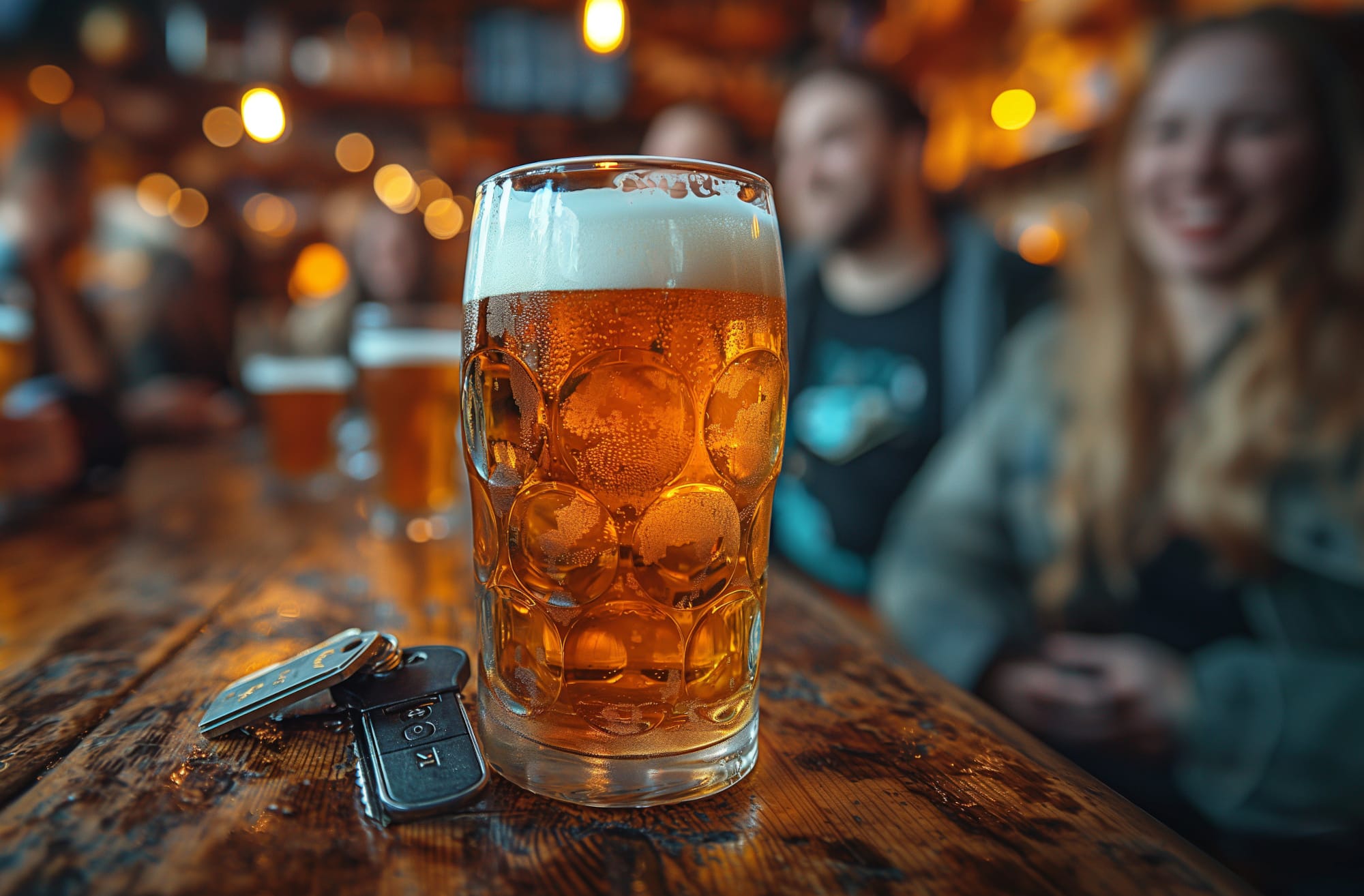Menu
Menu
Menu
close
Understanding alcohol laws in Texas is important for residents and visitors. Texas has some of the most detailed and, at times, confusing alcohol regulations in the country. Texas alcohol laws govern who can drink, when alcohol can be sold, where it can be consumed, and the consequences of misuse. By knowing the rules, you can make safer choices for yourself and your community.
Our programs even include Virtual IOP for those with busy schedules who want to join from their device if they cannot make it to our Dallas or Forth Worth locations offering outpatient treatment for mental health or substance use disorder for things like alcohol, opioids, prescription pills, benzos, and more.

The legal drinking age in Texas is 21. Like other states, Texas enforces this law strictly, and selling or providing alcohol to anyone under 21 can result in criminal charges. There is, however, a unique exception to Texas state alcohol laws. A minor may consume alcohol if a parent, legal guardian, or adult spouse is present and visibly supervising. Even with this exception, most businesses will not serve minors at all, since they can face fines, lawsuits, or even the loss of their liquor license. For many young people, drinking before 21 is not worth the risks to health, safety, or legal standing.
Texas law divides alcohol sales into categories depending on the type of beverage and the type of establishment. Beer and wine can typically be sold at grocery stores and convenience stores from 7 a.m. to midnight Monday through Friday, from 7 a.m. to 1 a.m. on Saturday, and from 10 a.m. to midnight on Sunday. Liquor sales are more restricted. Package stores may only sell liquor between 10 a.m. and 9 p.m. Monday through Saturday. Texas alcohol laws on Sunday require that liquor stores remain closed on Sundays, Thanksgiving Day, Christmas Day, and New Year’s Day. When holidays fall on a Sunday, the restriction usually carries over to Monday. Restaurants and bars follow slightly different rules.
Sundays are treated differently under Texas alcohol laws, and many of the restrictions date back to historical “blue laws” intended to limit alcohol sales on religious rest days. While beer and wine are available starting at 10 a.m. in grocery stores and convenience stores, liquor stores must remain closed all day due to Texas Sunday alcohol laws. Bars and restaurants can serve alcohol on Sundays, but only after noon, and many establishments pair this service with food to meet state requirements.
Holiday rules can also affect Sunday sales. If Christmas Day, New Year’s Day, or Thanksgiving falls on a Sunday, liquor stores must remain closed, and in some cases, the closure extends to Monday as well. These exceptions make it important to check local hours when planning purchases around holidays.
Because local regulations vary across wet, dry, and partially dry counties, some areas may impose even stricter limits on Sunday sales. Always verify local rules, especially if you are traveling between counties.
Texas has a long history of local control over alcohol sales. Out of 254 counties, only a handful are completely dry, meaning no alcohol sales are permitted. Many others are partially dry, sometimes called “moist.” In these areas, beer and wine sales may be allowed, but liquor sales are restricted, or sales may be permitted only in certain cities or voting precincts. Wet counties allow the sale of alcohol across the board. Because of this patchwork system, it is common for one town to permit sales while another just down the road does not. Local elections continue to shift these laws, so it is always worth checking the most recent rules in your area.
Texas alcohol law places responsibility on those who sell or serve alcohol. Establishments can be held liable if they continue serving someone who is clearly intoxicated and that person later causes harm, such as a car accident. This is called dram shop liability. To protect themselves, many businesses require employees to complete training approved by the Texas Alcoholic Beverage Commission (TABC). If an establishment can show that its employees were properly trained and that they did not encourage over-serving, they may be shielded from liability. These measures are designed to encourage safe service and prevent alcohol-related tragedies.
One of the more recent changes in Texas alcohol laws involves take-out orders. What started as a temporary allowance during the pandemic has now become permanent. Bars and restaurants can sell alcohol to go, but only if it is sealed, labeled with the business name, and purchased alongside food. The buyer must be 21 or older, and businesses are still responsible for ensuring alcohol is not sold to someone who is visibly intoxicated. This change was designed to help businesses while also maintaining safeguards for the public.
Driving while intoxicated, or DWI, is one of the most serious alcohol offenses in Texas. The legal blood alcohol concentration (BAC) limit is 0.08 percent, but drivers can be arrested for lower levels if they appear impaired. Even sitting in a parked car while intoxicated can lead to a DWI charge if it looks like you intended to drive. A first-time DWI can result in fines up to $2,000, jail time, a suspended license, and annual surcharges to keep your license. Penalties increase with repeat offenses, higher BAC levels, or if children are present in the vehicle. When it comes to alcohol laws, Texas enforces these laws aggressively to deter impaired driving and protect public safety.
If you’ve worried about being pulled over for a DWI, this may be a sign to get support. Check out our IOP in Dallas, TX, where our team can help you take steps toward lasting life change.
The Texas Alcoholic Beverage Commission, or TABC, oversees all aspects of alcohol regulation in the state. Established in 1935, the agency manages licensing, inspections, and enforcement. TABC agents can investigate violations, issue fines, and even make arrests. The commission also provides training programs for servers and runs educational campaigns about responsible alcohol use. In 2021, TABC launched an online system called AIMS to make it easier for businesses to apply for and manage permits. The agency’s work helps balance public safety with the economic role alcohol plays in Texas communities.

Texas alcohol laws affect nearly everyone in the state, from restaurant owners and bar staff to parents, students, and everyday residents. Knowing the rules can help you avoid costly mistakes, protect yourself legally, and make safer choices. These laws are not just about control; they are about reducing harm and keeping communities healthy. For individuals struggling with alcohol misuse, understanding the legal risks is only part of the picture. Recovery is possible, and support is available. Knowing what to expect in alcohol treatment can help you take your next step.
Understanding Texas alcohol laws is important, but if you or someone you love is struggling with alcohol use, knowing the rules is only one part of the picture. At Turning Point Recovery Network, we help individuals and families find the support they need to overcome alcohol addiction and take the first step toward recovery.
Our team can connect you with trusted treatment options, counseling services, and resources that match your needs and life circumstances. You don’t have to face this alone. Help is available.
If you’re ready to talk to someone who understands what you’re going through, reach out to us today. Taking the first step may feel difficult, but it can change your life.
No. Liquor stores must close on Christmas Day, regardless of the day of the week. Beer and wine sales may still be allowed at grocery and convenience stores, but hours can vary based on local regulations.